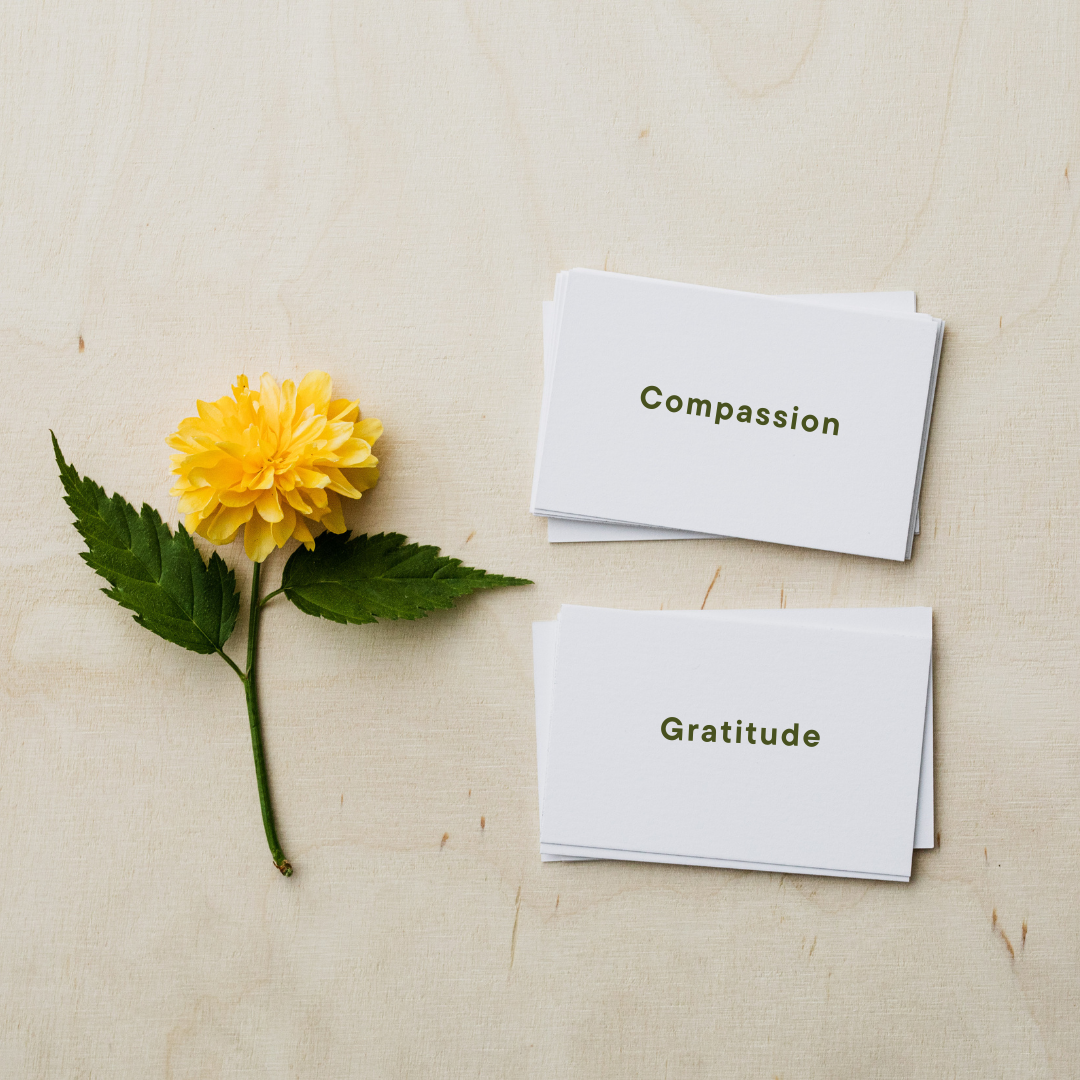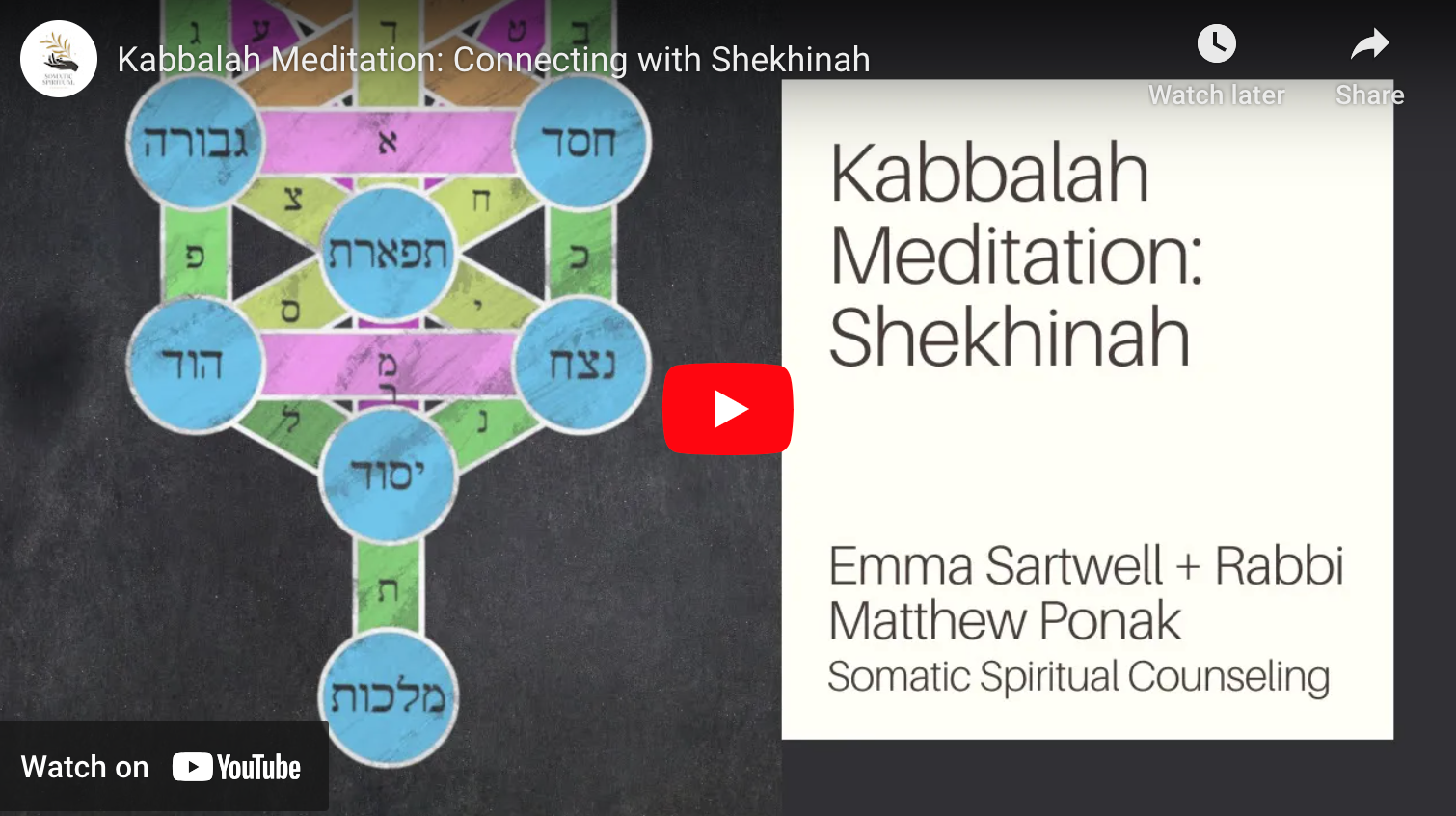Anyone ever tell you to stop worrying about your problems because “we’re all one” or “time doesn’t really exist anyways”? In this video Dara and Emma explore implicit shaming messages that run rampant in spiritual communities.
VIDEO TRANSCRIPT
“I’m Attracting Everything that is Happening to Me”
Dara: Hi, this is Dara del Rio and Emma with Somatic Spiritual Counseling. And today we are talking about implicit shame messaging in spiritual communities. And this is just going to be a conversation between us, how we might normally talk. I hope you enjoy it. Here’s a good one. I’ve gotten a message so many times that whatever I’m going through is because I deserve it, something like that. You know what I mean?
Emma: Like karma?
Dara: Yeah, it’s my karma that I’m experiencing this horrible situation, and that somehow I’ve done something in the past, in a past life, or I’m attracting a certain kind of energy, even if it’s horrible, like financial bankruptcy or rape or abuse. There’s usually some implicit shaming message. And I notice people will often do it as a way to almost insulate themselves from having to be present with the unfairness of life’s circumstance. Has that happened to you?
Emma: Yeah. I think it can be really scary to admit that random horrible things can happen to us.
Dara: Yeah.
Spiritualizing the Wounded Inner Child
Emma: And so it feels safer to have a worldview where we cause our own experience.
Dara: Right. And we were talking about this the other day. It almost mimics the wounded inner child that can’t differentiate between the outer world not being their fault. And so it’s almost like this way of spiritualizing that wound without healing it, saying, “Oh, well, everything you experience is your fault.” It’s actually coming from a pretty broken place, in my opinion.
Emma: Yeah. And I think it keeps people stuck because it keeps you in a mindset of “This is happening to me because I’m not good enough.”
Dara: Right. And that “not good enough” is the implicit shame messaging. And it just permeates everything. I mean, to me, I feel like it’s like this shadowy blackness surrounding all of these really beautiful maybe spiritual states or experiences. There’s always this film of ick, you know?

Addiction to Cleansing/Purging
Emma: Yeah. And I think it can be easy to get into a cycle of “I need to cleanse myself.”
Dara: Right. The addiction to the purge.
Emma: Yeah. I’m attracting things that I don’t want, so I must have some dirty part of me that needs to be cleansed.
Dara: Right. Like I just want to get it all out, and it feels so good, but sometimes there can be an addictive quality to feeling this release. And I think I wonder too if there’s an overemphasis on letting go. It’s almost like letting go is the ultimate everything. It’s like almost the only thing to do. What about holding on? Sometimes isn’t it better to hold on? Why is the solution to every ailment or every situation to let go? It seems like the psychological way that we are addicted to cleansing or purging and feeling like not good enough on some level.
The Remedy to Any Situation is Always “Let Go”
Emma: Yeah. And then there’s so much guilt if we can’t let go.
Dara: Right. Which, of course, we can’t oftentimes because that’s not the proper action. I mean, if you look at the seasonal cycle, letting go happens what, like once a year? I mean, there’s so many other parts of the whole… Like when the seeds fall from the pods, you could say that’s a letting go. But what about the growing and the gestation and the reproductive part? I mean, that’s all in there too.
Emma: Right. And I think it can start to cause this split between our personal self and our spiritual self. And I have a teacher who talks about the spiritual superego. Normally, a superego is like an inner critic, like a critical parent or critical teacher. The spiritual superego might look really nice. They might look like a Mother Teresa, but the things they’re saying are subtly the same messages of like “Why can’t you just let go?”
Dara: Right.
Emma: “You’re doing it wrong.”
A Spiritual Superego is More Dangerous than a Secular One
Dara: “You’re not good enough.” Right. Yeah. I mean, having an ego is one thing, and then having a spiritualized ego, I think, is much harder to really navigate.
Emma: It’s more sneaky.
Dara: It’s more sneaky, right? Because they think they’re really on the path. That part of us that’s weaving these stories.
Emma: Yeah. And it can become a similar trap of succeeding in our lives, that we have to work really hard on our spiritual path, and we’re gaining self-worth or self-esteem by how much we meditate or…
Dara: Or how much we let go.
Emma: Or how much we let go.
Dara: Yeah. Right. When really what if being good enough is just enough?
Emma: What if we’re already good enough?
Dara: Yeah.
We Must Take Accountability for Everything Around Us
Emma: I think there’s an interesting conversation to be had here also around victimhood. I don’t know exactly how to put it, but I think victim has such a taboo to it. It’s such a taboo word.
Dara: Interesting.
Emma: And I think there are situations where people are victimized.
Dara: Right. And it’s like there sometimes can be an overemphasis on not being a victim and always taking your part in accountability and…
Emma: Which I think is important.
Dara: Right. Sure.
Emma: That’s one side of the coin that’s really important.
Dara: Right. Of course. Yeah. I mean, I think in mainstream culture, people unconsciously stay in the victim role. Perhaps in mainstream spiritual culture, there’s like maybe an overemphasis on never being in the victim role and of always being in an “empowered” role. But it’s not really a real empowerment, right? It’s more of just taking responsibility for something that really might not have been your fault, or might not have some deep-seated kernel of wisdom to offer you that you need to stay in.

Taking Advantage of Our Basic Need to Belong
Emma: Yeah. I think it’s nuanced, and it’s different for every situation and every person. But when it gets into I’m shaming myself because I feel like a victim, then it’s even harder to find our way out. Or we were even talking about belonging. These spiritual communities, there’s like a certain way that you’re supposed to dress and a certain way that you’re supposed to talk, and certain phrases, and certain types of songs that are meant to be sung.
Dara: Yeah. Right. And of communicating.
Emma: And there’s sort of an overemphasis on building a culture that’s very homogenous.
Dara: Right. Yeah, I see that a lot. Often, when we’re waking up to maybe the toxicity of how we grew up or something, there’s a desire to move away from that. But of course, also a desire to belong to something. And then maybe all of those attachments really just get transferred into a different paradigm that’s really underlying the same paradigm. And just wanting so desperately a sense of belonging that’s like, “All right, we’re going to drink the Kool-Aid of whatever it is.” And then the implicit shame does just follow you because your sense of belonging is threatened if you step outside of any of the cultural norms, originally from your family system and then from your new spiritual family system.
Emma: Right. And the belonging is contingent upon acting a certain way and performing a certain role. It’s not an inherent belonging for who we are. So, whenever there’s that kind of split, there’s going to be a shame, like “Well, I don’t really know if I would still belong if I didn’t conform to this community or this lifestyle.” So how can we not feel ashamed of who we might be underneath of that?
Dara: Yeah. Right. And I notice too that there’s typically a pattern to it, like there are certain rules that you have to abide by to maintain that sense of belonging. One of them is usually like “Oh, we’re all the same. Everything is love.” I see that one a lot.
Emma: I have heart palpitations hearing you say that.
Dara: I have had this conversation with many people who are actually really relieved to hear somebody voicing this kind of thing. Because I do think a lot of us who are involved with any kind of spiritual but not really just community of sorts does feel this on some level.
Emma: This pressure to conform.
Dara: The pressure to conform, and also the seed of an idea of some level of authenticity that wants to come forth. So, in some cases, when I’ve articulated ideas like this, I’ve been met with feelings of people being threatened or whatever, but a lot of relief too and actually celebration, like “Oh, yeah, I feel that way too.”
Virtue Signaling With “Feeling Grateful” All the Time
Emma: It makes me think of I’ve been in circles where maybe people are checking in about their feelings or sharing a prayer or something, and you hear the same. You hear like “I feel gratitude.”
Dara: Oh, god.
Emma: You know? Oftentimes, I want to say, “I feel irritated.” Not even about the group necessarily, but just I’m having a general…
Dara: Yeah.
Emma: And sometimes I say it, and sometimes I feel like I can’t muster the inner strength to differentiate that much.
Dara: Totally. Yeah, I hear you. I mean, the whole gratitude thing is funny. That’s a great example of implicit shaming, like this need to feel gratitude and express gratitude all the time. I mean, it’s great, but inauthentic gratitude is worse than not expressing gratitude at all. And implicitly shameful gratitude, I don’t know what mixed message you’re sending to the collective, but I don’t think it’s positive. I don’t. I like expressing gratitude, and I really try to only do it when it’s authentic. I’m not trying to crank it out.
Emma: There are studies about affirmations. If you’re saying affirmations that are too far from your actual experience, it makes you feel worse.
Dara: Oh, I’m not surprised.
Emma: It increases depression.
Dara: Yeah. You’re just digging yourself deeper into the hole you’re trying to climb out of in a way. And I’ve seen people do that, just that, and it’s not pretty.
Creating a Cult by Ostracizing Anyone Who Says “No”
Emma: I’ve also been in a lot of circles where there’s a lot of pressure to “We all love each other.” And I think that can become really toxic.
Dara: Oh, god.
Emma: Because I think most people experience that message as like we’re not allowed to acknowledge conflict. If we all love each other, we’re not allowed to acknowledge conflict. I’m not totally sure why that leap gets made, but it seems to.
Dara: Well, it certainly harkens back to most of our home dynamics as children. Yeah, that makes sense.
Emma: So then, how do we all feel when there is conflict? How do you not feel ashamed?
Dara: Right. Because you’re not staying in love.
Mainstream Spiritual Culture is in Its Infancy
Emma: It’s making me think. The spiritual communities that we’re talking about, I think, are often new age communities in the U.S. And I feel like there might be a dynamic of that form of spirituality being in its adolescence, where it’s in reaction to mainstream cultures, where it’s like “No, we’re going to take the opposite. Someone needs to take the opposite, see the opposite truth.”
Dara: Which is what teenagers do to differentiate themselves from their parents.
Emma: Yeah. Which is so important. Teenagers also feel a lot of shame. And also, I think what we’re calling for is what’s the next stage of maturation for American new age spirituality?
Dara: Yeah. Hopefully, a synthesis of love and duality of time and timelessness, right? Something a bit more nuanced.

The Need for Multiplicity + Diversity in Spiritual Ideology
Emma: Right. Like oneness and diversity.
Dara: Yeah. And diversity is so important, because if we can accept differences, then I think that opens the doorway to actual intimacy and communication with others instead of just a blanket sameness that we have to stay in. I mean, that’s where you can connect, right?
Emma: Yeah. And we see this with teenagers, you know? They try to find the groups that are all the same and stay in that group. And it’s really comfortable and can build some sense of self. And then eventually, there’s a time to say, “My sense of self is bigger than this group of people or these tropes of style or expression.”
Dara: Yeah. That does kind of feel about where we’re at culturally with this U.S. new age paradigm is maybe looking for the next level of maturity after adolescence.
Emma: And I think that we could call it different things. People call it spiritual but not religious. What else do people call it? I think sometimes new age can feel too limiting.
Dara: Right. I see.
Emma: But the culture of yoga classes, meditation retreats.
Dara: Plant-based eating.
Emma: Ayurvedic cleanses.
Dara: Yeah. Plant medicine, crystals. I mean, it’s touched so many of us. We should be wearing different outfits.
Emma: Yeah, we should.
Dara: At least you have some spiritual earrings.
Emma: I think they might be too spiritual for this video.
Dara: Geez.
Emma: Thanks for watching our musings on implicit shame in spiritual communities. Let us know if it resonates with you, what your experiences have been. You can contact us on the website. There’s a contact form: somaticspiritualcounseling.com. And we hope to hear from you soon.
Dara: Bye.
Learn more about somatic therapy here.
—————————————————————————————————————————




